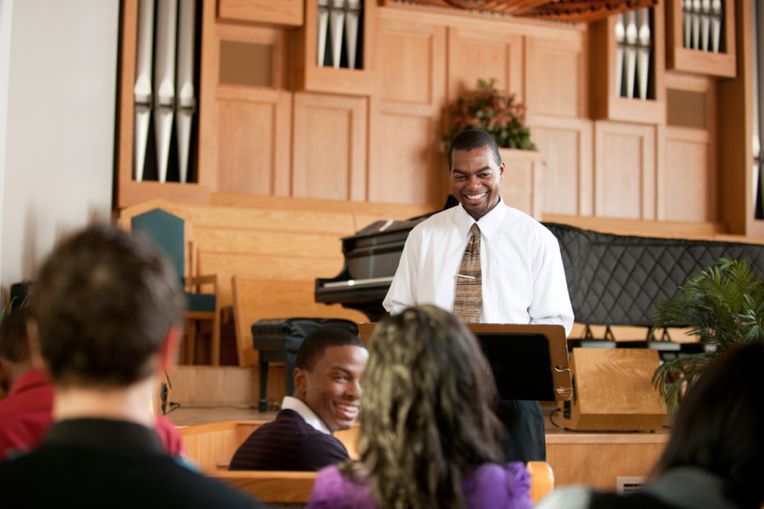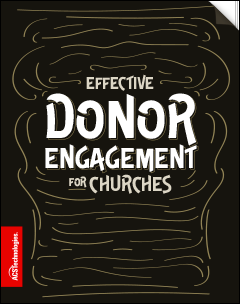Donors are often stewarded more impactfully by the nonprofit organizations they support than by the church they tithe to.
In this series, we are tailoring the concepts of The Four-Part Cycle of Donor Engagement to the church setting. This series will provide tools for best leveraging church staff and volunteer leadership in each of the phases. This four-part cycle includes (1) acknowledgment, (2) trust-building, (3) presenting the case for support, and (4) the ask. A donor is always in a phase of the cycle, which helps us keep the donor’s needs, interests, and values as our priority.
The Four-Part Cycle of Donor Engagement
Today, we’re looking at trust-building. This means something different for church givers than for donors to a cause or nonprofit charity. In these situations, donors are typically less directly connected. However, for pastors and church leaders, the trust-building phase IS the relational phase of ministry. This is where we intentionally discover a donor’s passion and where it connects to our church’s work.
Donors will not commit to a cause or ministry where they have not established trust. The importance of this phase of donor relationships cannot be overstated. No less than 80 percent of the time we spend with a donor will involve the trust-establishment process. If there is a single core to ministry-based fundraising, this is it. You don’t hound, pressure, manipulate, or ‘emotionally inspire’ a contribution from someone; you build trust so that a contribution becomes the natural outflow of the relationship.
The church has a massive advantage here. We’re blessed with established connections in and community among members. And each member has reasons for being involved. But too often I see the church taking these for granted. By not asking members why they attend, what keeps them in the congregation and what inspires their giving.
Strategies for Trust-building
Pastors, this is where your staff and key volunteers can be incredibly helpful in stewarding relationships with both long-time and new members, getting to know them and asking those questions. While this can be accomplished through intentional conversations, one-on-one meetings and just natural relationship building, it can also be helpful to consider occasional surveys to members or subsets of your donors. The act of asking for feedback is in itself a trust-building effort. Short, targeted feedback surveys that combine both quantitative (such as Likert scale) questions with a few open-ended ones can provide tremendous insight to member attitudes or how your various communications or programs are perceived. This also can give your loyal members a sense of agency and ownership in the ministries they’re supporting with their gifts.
Getting your members involved and working on the front lines in your ministry is another foundational trust-building strategy. Donors who are also volunteers give more – and more frequently – than those who are not. This is another area where the church has an edge over other charitable organizations. Especially in terms of the kind of experience we should be able to provide givers. Leverage your staff and your key volunteers in really being intentional about honoring your loyal volunteers, spotlighting them, helping share their story and inspiring others with it. Consider how your volunteers can help you communicate your ministry’s impact and outcomes more effectively.
In the next blog of this series, we’ll talk about how to best prepare for a campaign or your church stewardship season in phase three of the four-part donor cycle: presenting the case for support.
Effective Donor Engagement for Churches
No matter where you find yourself as a church in this season – from planning a capital campaign to thanking annual pledge donors – the hands-on, simple tools in this guide will help you and your staff effectively acknowledge and engage your best givers.
Tim Smith has over 30 years of experience in Church, Non-Profit Administration, Management, and Fund Development. Serving as an Executive Pastor and Chief Development Officer in growing Churches and Non-Profit Organizations has provided a wide range of expertise and resources. Tim serves as Founder and CEO for Non-Profit DNA, a boutique firm committed to helping nonprofits and churches build their capacity through fundraising, leadership, team building, staff recruiting, and coaching.





